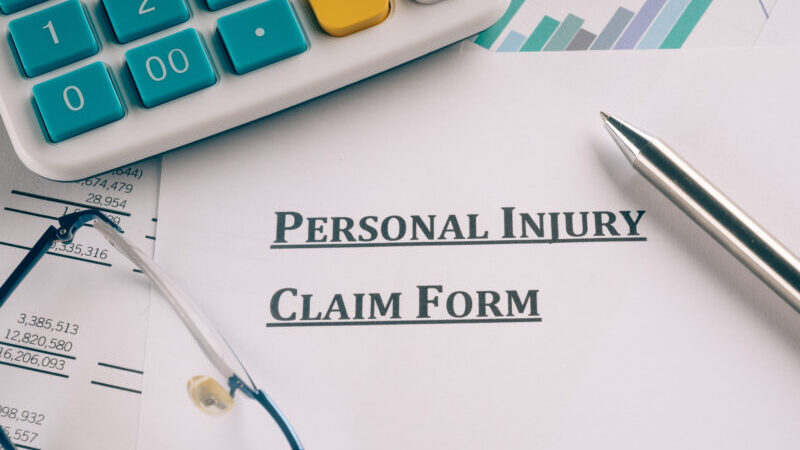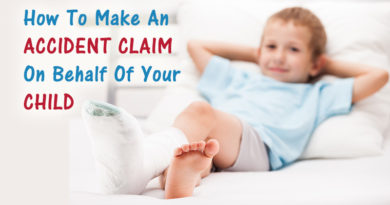Everything You Need To Know About Vaccine Injury Claims
Vaccine injuries can be extremely distressing and life-altering. Understanding the process of filing a vaccine injury claim is important for those who have experienced an adverse reaction to a vaccination and their families. This article will provide all the information you need about filing a vaccine injury claim, from understanding your rights to navigating the claims process.

Definition Of Vaccine Injury Claims
A vaccine injury claim is a type of legal action taken when someone believes they have been harmed as a result of receiving a vaccination. Vaccine injury claims can be made against the manufacturer or distributor of the vaccine and may seek compensation for medical expenses, lost wages, pain and suffering, and other related damages.
It’s important to note that while most vaccinations are safe and effective at preventing serious diseases, there is still some risk involved with getting them. For this reason, those who feel a vaccine has injured them should consider filing an official claim to get the help and support needed to recover from their symptoms.
In recent years, shoulder injuries related to vaccine administration (SIRVA) have been a prevalent after vaccination. Thus, it would be best to seek just compensation for the harm done. However, the average length of SIRVA cases usually takes three to four years to settle a claim.
Generally, vaccine injuries are rare, but if they occur, the federal government has set up a program to help people get compensation. The National Vaccine Injury Compensation Program (NVICP) is designed to provide financial assistance to individuals injured by a vaccine covered under the VICP.
Overview Of Different Types Of Vaccines
Vaccines come in many forms, depending on their purpose and target population. For instance, live attenuated vaccines use a weakened version of the virus to stimulate an immune response. These can be further divided into oral and nasal sprays. Inactivated vaccines utilize dead viruses or bacteria to provide immunity against disease-causing agents; examples include the flu shot and polio vaccine.
Then there are subunit vaccines such as recombinant protein-based ones, DNA vaccines, and vectored/recombinant viral vector vaccines designed to prevent infections by delivering genetic material directly into cells. Finally, toxoid vaccines focus on harmless components of bacterial toxins to induce protection against bacterial diseases like diphtheria and tetanus.
All types of vaccines protect individuals from various illnesses with varying degrees of effectiveness, but all carry potential risks for adverse events following immunization.
How To Determine If A Vaccine Injury Is Related To The Vaccine
To determine if a vaccine injury is related to the vaccine, it’s important to consider the timing of onset, symptoms, and severity. The NVICP uses this information when deciding whether or not an injury can be attributed to vaccination. Symptoms must have occurred within the time frame specified in the Vaccine Injury Table for that particular vaccine.
Additionally, medical records should demonstrate no cause for the symptom development other than the given vaccine. It’s also important to note that mild side effects, such as soreness at the injection site, do not qualify as compensable injuries under NVICP. Ultimately, all claims are evaluated on a case-by-case basis. Be sure to work with your doctor and lawyer if you have experienced a qualifying injury from a vaccine.
Step-By-Step Guide To Filing A Vaccine Injury Claim
Filing a vaccine injury claim can be complicated, but with the right information and guidance, it doesn’t have to be. To start your claim, you must fill out Form VAERS-1 on the U.S. Department of Health and Human Services website.
This form requires that you provide detailed information about yourself: name, address, age, gender, and details about the vaccination itself. You should also include the type of vaccine given, the date and time administered, and the manufacturer’s lot number, so make sure you have this information handy before sitting down to complete the form.
Once submitted online or by mail, you should receive an acknowledgment letter within two weeks acknowledging receipt of your claim. If not received in this timeframe, contact them directly for follow-up.
After submitting the initial paperwork, additional forms will be sent to you throughout your case, including requests for medical records or other supporting documentation, which must be completed promptly and returned for your case to move forward quickly.
Documents Required To File A Vaccine Injury Claim
Now that you know the process to file a vaccine injury claim, it’s important to understand what documents are required:
- Medical records for visits related to the vaccine injury
- Vaccination records from either your healthcare provider or state health department
- Detailed written accounts of the symptoms and how they have impacted your life since receiving the vaccination
- Records of any out-of-pocket expenses incurred due to the illness or disability caused by the vaccination
- Evidence of employment status if filing for lost wages or loss of earning capacity.
Having all these documents ready when applying will ensure a smooth review process and improve your chances of being successful in obtaining compensation.
Time Limits For Filing A Vaccine Injury Claim
Filing a vaccine injury claim can be intimidating, and it’s important to understand the time limits that apply. The statute of limitations for filing a claim is three years from the date of onset or two years from when you became aware, whichever comes first. Claims must also be filed within one year of receiving notice of allowance or denial of benefits by the NVICP.
Submitting your documents on time and keeping copies of all relevant paperwork is essential. If you miss any deadlines, there may be no further opportunity to pursue the case.
How Compensation Is Determined
To get an understanding of how compensation is determined, here are three key points:
- The amount of money awarded in vaccine injury cases depends on the severity of the medical condition caused by the vaccination.
- Claims must be submitted within three years from the date of onset or two years from the date of diagnosis to receive compensation through the NVICP.
- Your attorney may also be able to negotiate with the other party involved to obtain additional damages beyond what would normally be provided under NVICP guidelines.
Having these facts helps set expectations about potential award amounts and guides which course of action best suits your needs.
Appeals Process For Denied Claims
Once a claim has been denied, the claimant can appeal their decision. The NVICP allows claimants to file an appeal if they disagree with the initial outcome of their case. Two types of appeals are available: the U.S. Court of Federal Claims and NVICP itself.
An experienced attorney can discuss these options with claimants to determine which route is best for them. If a claimant chooses to proceed with an appeal, they must do so within three months from the date their claim was denied. It’s important to note that any new evidence or arguments must also be presented during this period to be considered by the court or NVICP when ruling on the appeal.
Liability Of Medical Professionals
Medical professionals can be held liable for vaccine injury claims in some ways. Here are key points to keep in mind:
- Vaccine manufacturers and healthcare providers may be sued if a patient experiences an adverse reaction or harm due to vaccination.
- In some cases, the physician who administered the shot is responsible for their negligence which is considered medical malpractice.
- Healthcare workers must inform patients about potential risks associated with vaccines before administering them so they can make informed decisions regarding their healthcare choices.
Medical professionals and patients need to understand what legal obligations come with vaccine injuries and how these might play out in court proceedings should they become necessary.

Liability Of Vaccine Manufacturers
For many vaccine injury claimants, the question of who is liable for their harm can be daunting. Vaccine manufacturers are held responsible under the National Childhood Vaccine Injury Act (NCVIA). They may be subject to civil liability claims if they fail to meet certain standards in producing or distributing vaccines.
Manufacturers must adhere to federal guidelines established by the NCVIA and provide adequate warnings on labeling materials about potential risks associated with taking specific vaccines. If companies do not comply with these regulations, individuals injured by these products may have legal recourse against them. It’s important for those affected by vaccine injuries to understand that options exist for seeking compensation from negligent vaccine manufacturers.
Conclusion
In conclusion, vaccine injury claims are important for those who may have sustained harm from vaccination. Individuals must understand the eligibility criteria, policies, and liabilities associated with filing a claim to ensure they get the compensation they deserve. Vaccines play an integral role in our society, and we must hold medical professionals and manufacturers accountable when something goes wrong.



